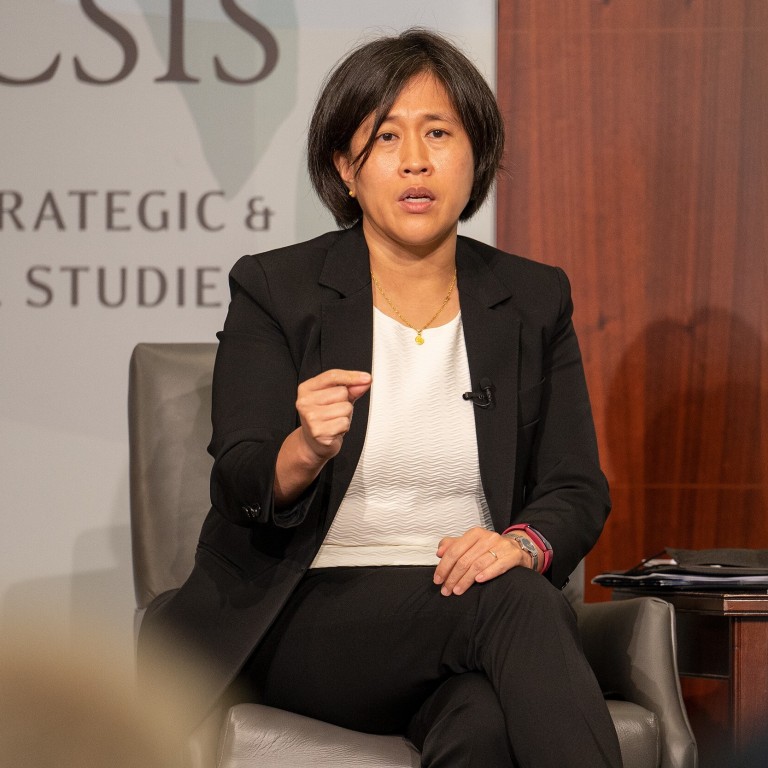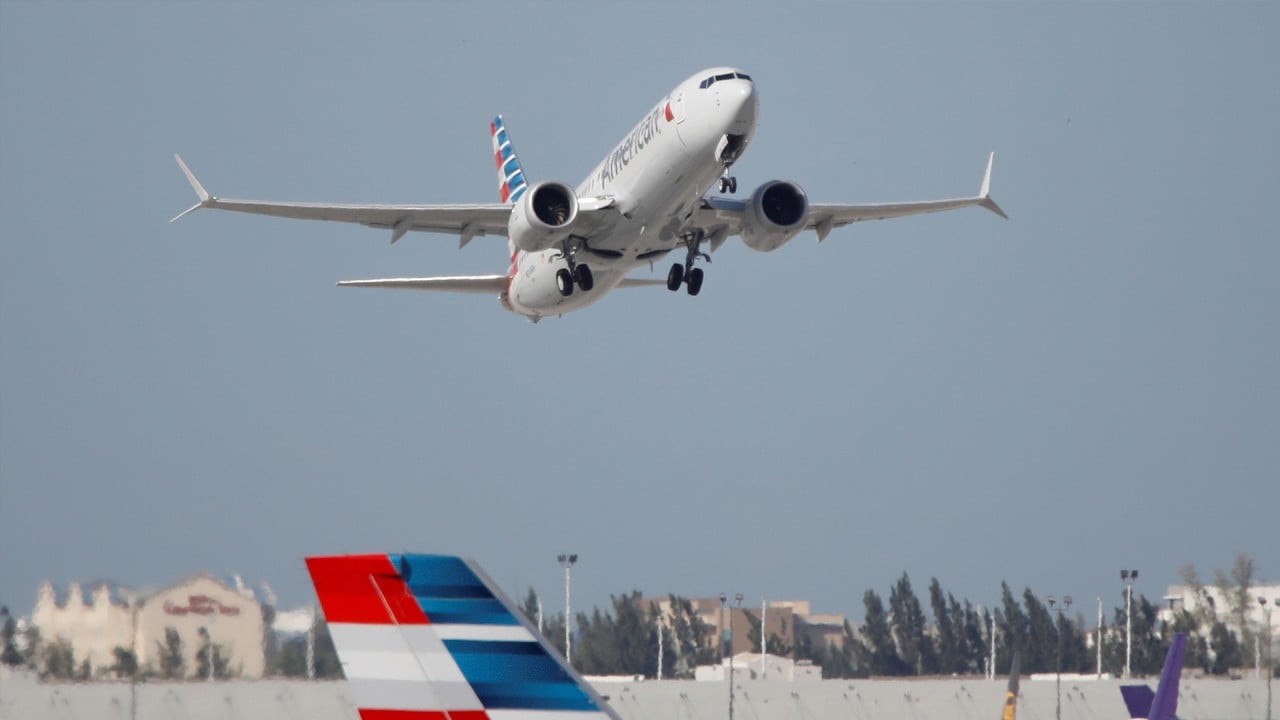
China’s Boeing purchases seen as ‘weakness’ in US trade deal probe, hurt by ‘sour’ relations
- US Trade Representative Katherine Tai says the United States is exploring all weaknesses in China’s performance under the phase-one trade deal
- China is running far behind in its promises in the deal to boost purchases of US goods by US$200 billion during 2020 and 2021
Tai on Wednesday said the administration aims to hold Beijing accountable to the two-year trade deal which was signed in January last year, with China seen to be running far behind in its promises in the Trump-era agreement to boost purchases of US goods by US$200 billion during 2020 and 2021.
Boeing’s biggest offering of planes to China, the 737 MAX, has been grounded since 2019 following two fatal crashes, while its business has also been caught up in the trade war between the United States and China that started the previous year.
In the aviation business, other factors are at play, especially the current political schism between the two countries
Analysts believe Boeing’s fate in China hinges on better relations between Beijing and Washington, meaning unless there is significant improvement, it is unlikely to receive approval from the Civil Aviation Administration of China (CAAC).
“There’s no doubt the MAX has been fully fixed and is one of the safest aircraft to fly today. But in the aviation business, other factors are at play, especially the current political schism between the two countries. It weakens the secondary market [and residual value] of the MAX if China indefinitely delays its return,” said Shukor Yusof, founder of aviation consultancy firm Endau Analytics.
Data from Ascend by Cirium, the consultancy arm of global aviation data company Cirium, showed that 113 aircraft in Boeing’s inventory of 335, defined as aircraft which have flown but not yet been delivered, are scheduled for delivery to customers in China.

01:57
Boeing 737 MAX resumes passenger flights in the US after 2-year suspension
“China is critically important to Boeing and the MAX programme,” said Rob Morris, global head of consultancy at Ascend by Cirium.
He added that at face value, the MAX’s market share does not appear to be suffering as a consequence of not being able to deliver in the Chinese market and despite strong competition with rival Airbus.
US Commerce Secretary Gina Raimondo said in September that the Chinese government is preventing its domestic airlines from buying “tens of billions of dollars” of US-manufactured planes.
China’s aviation regulator, the CAAC, did not respond to questions by fax on the status of Boeing’s 737 MAX.
Is there still a trade war under Joe Biden’s presidency?
It has previously said that it would not lift the grounding order until design modifications had been recertified, pilots had been sufficiently trained and clear findings into the two fatal crashes in Ethiopia and Indonesia had been released.
However, he also acknowledged the delivery time would depend on a number of factors, including regulatory approvals.
“This delivery timing and the production rate ramp profile remains dynamic, given the market environment, customer discussions, regulatory approvals, and supply chain stability,” Calhoun said.
China to step up aviation self-reliance by 2025 amid US tensions
The US and China signed their long-awaited deal in January 2020, and the terms outlined in the agreement took effect one month later, with China committing to buying an additional US$200 billion worth of goods and services over two years compared to 2017 levels.
But according to a report released by the Peterson Institute for International Economics last month, China’s purchases of US goods from January to September this year had reached only 68 per cent of the year-to-date target based on Chinese import data, and only 61 per cent of the target based on US export data.
In the first year of the agreement, China’s purchases of all US products reached only 59 per cent of the target based on US export data or 58 per cent of the target based on Chinese import data.

